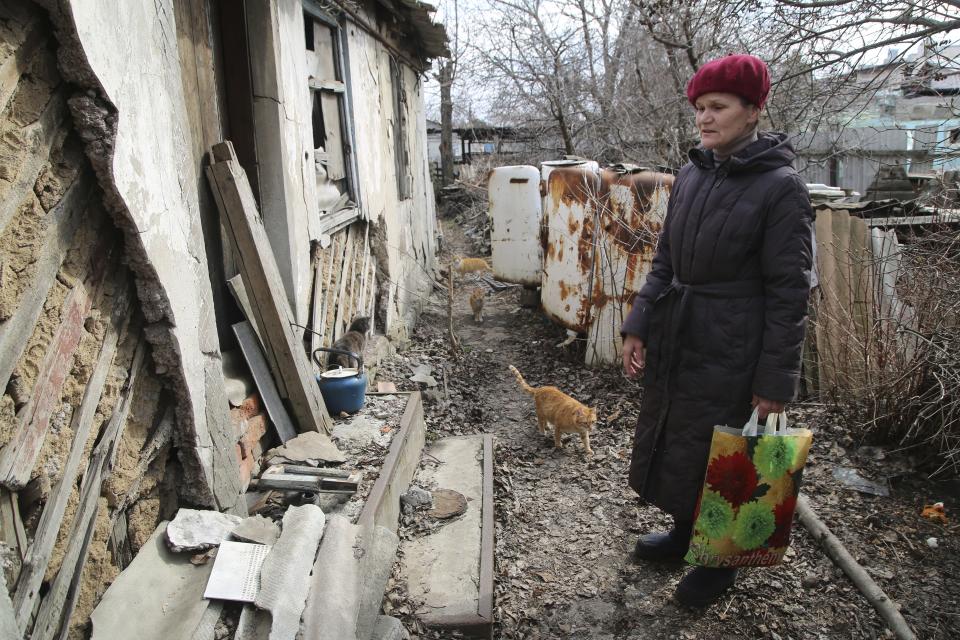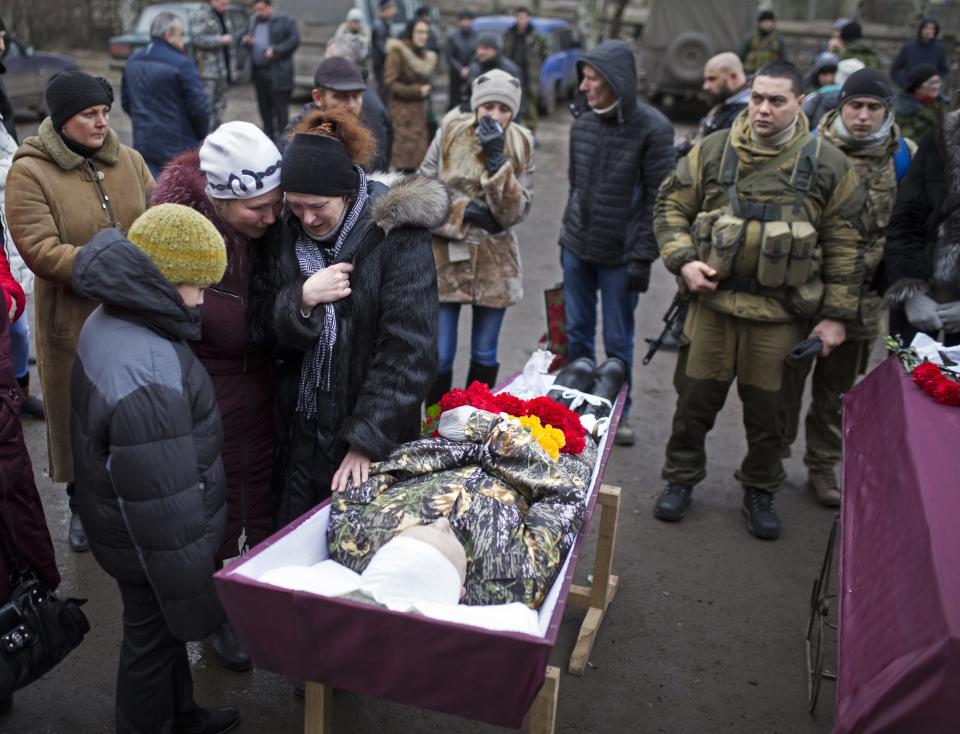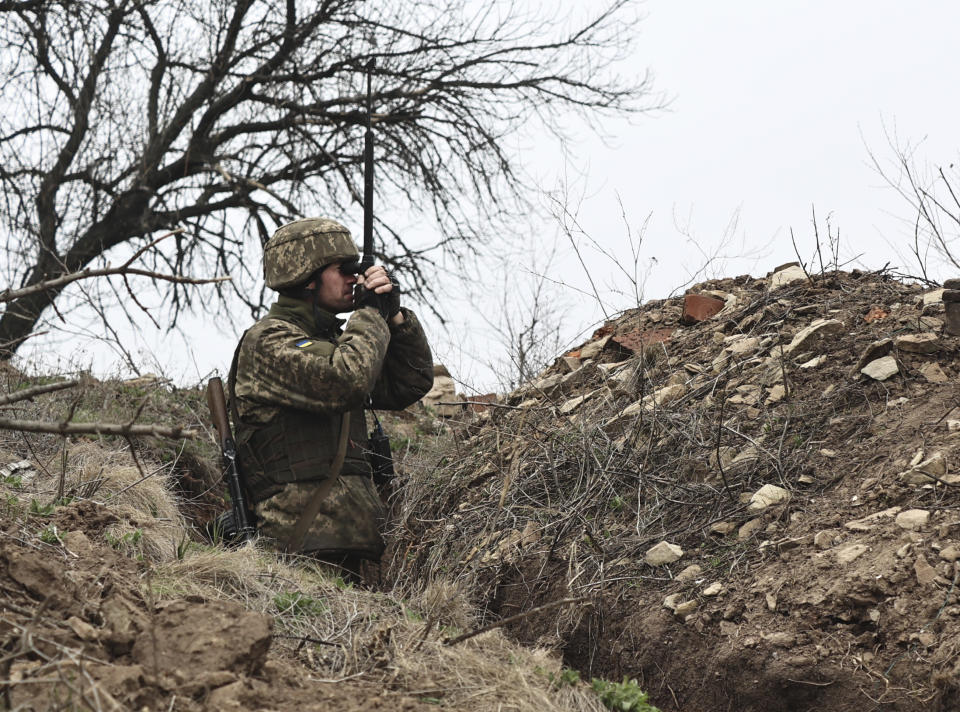Ukraine seeks stronger Western backing amid Russian buildup
- Oops!Something went wrong.Please try again later.
KYIV, Ukraine (AP) — Ukraine's top diplomat asked Thursday for stronger Western backing, saying “words of support aren't enough” amid escalating tensions in the country’s east and a Russian troop buildup across the border.
Ukrainian Foreign Minister Dmytro Kuleba, speaking after talks with his counterparts from Estonia, Latvia and Lithuania, asked the Baltic nations to reach out to other European Union and NATO members about offering “practical assistance” to Kyiv.
More than 14,000 people have died in seven years of fighting between Ukrainian forces and Russia-backed separatists that erupted after Russia's 2014 annexation of Ukraine's Crimean Peninsula. Efforts to reach a political settlement have stalled, and violations of a shaky truce have become increasingly frequent in recent weeks.
Ukraine and the West also have sounded alarm about the concentration of troops along Russia's western border, a buildup that the U.S. and NATO have described as the largest since 2014.
Russia has argued that it's free to deploy its forces wherever it deems necessary on its territory, and the Russian defense minister charged earlier this week that the buildup was a response to security threats posed by NATO forces near Russia's borders.
Kremlin officials have warned Ukraine against trying to use force to reclaim control of the rebel east, saying that Russia may intervene to protect civilians in the region.
Amid the recent tensions, the United States informed Turkey that two U.S. warships would sail to the Black Sea on April 14 and April 15 and stay there until May 4 and May 5. But Turkish Foreign Minister Mevlut Cavusoglu said Thursday that the U.S. Embassy had notified Ankara that the two warships wouldn't be making the crossing.
The U.S. Navy ships have made regular visits to the Black Sea in past years, vexing Moscow. Earlier this week, a senior Russian diplomat described the planned U.S. ships' deployment to the Black Sea as “openly provocative.”




